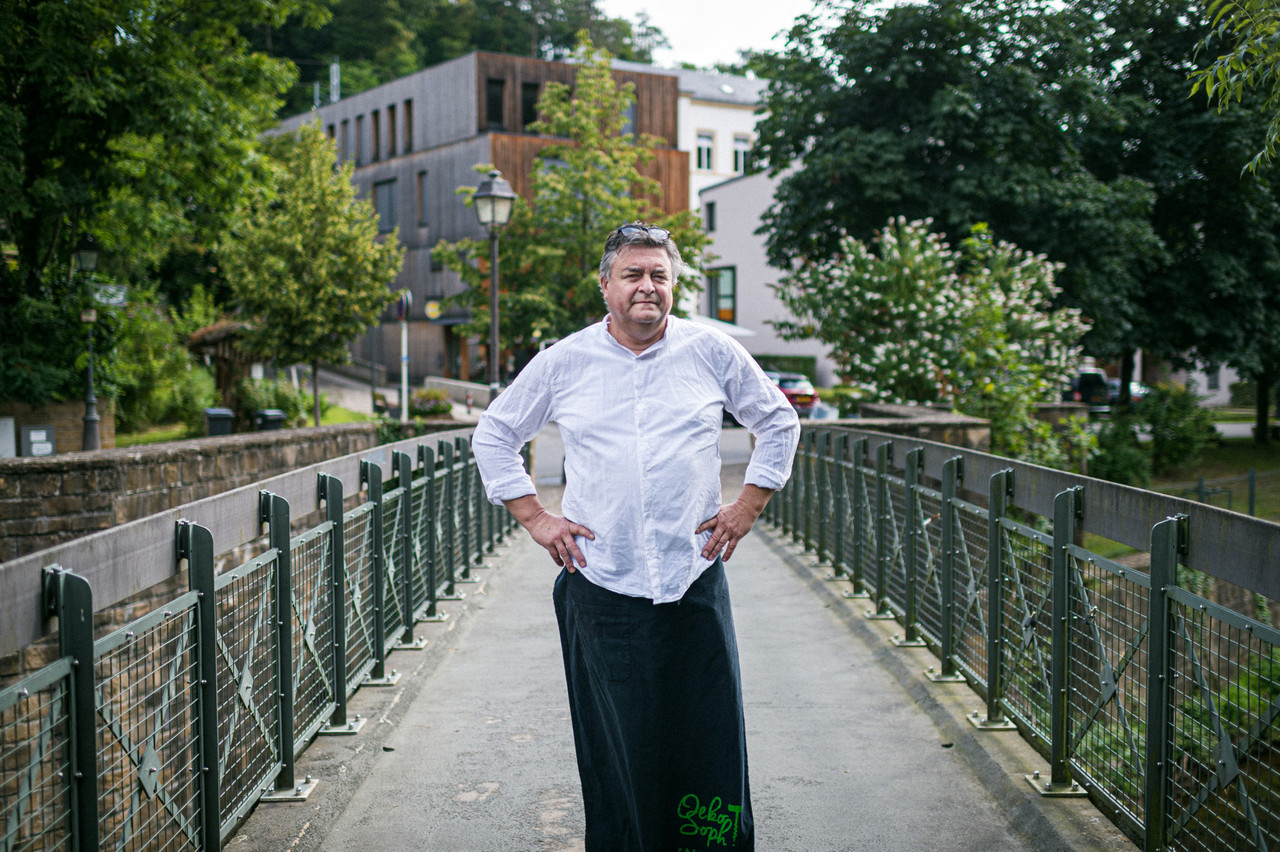It’s a district of Luxembourg City, but it sure feels like a strip of countryside: Pfaffenthal is a long, narrow neighbourhood running along the Alzette valley underneath the Red Bridge. “You have two parts of Pfaffenthal,” jokes Lou Steichen, who runs a restaurant there. “One side of the outside and the other side of the outside.”
With buzzing Clausen and the Grund to the south; well-populated Eich to the north; and traffic-heavy Kirchberg and Ville Haut looming above to the east and west, respectively, it’s an unlikely candidate for a pastoral oasis. And yet, reports Steichen: “All my clients say that it’s so quiet, so green, that you think you’re in the country.”
“I hope it will stay like this,” he adds.
The village metaphor extends beyond the scenery, too. The chef, who hails from the north, admits that he hadn’t expected to find such local folk in the capital. “At first, I thought it would be like Luxembourg City. But then I saw that the people [of Pfaffenthal] are totally different to those [city residents] that I saw before. They’re more like the people of the north than you’d think.”
“I come from a village of, really, five houses,” he explains, “so everyone knows everyone. And here [in Pfaffenthal] everyone knows everyone. Maybe not your name, but where you live. Everyone says ‘hello’. That’s very good.” He says that strangers strike up conversations more easily too, which he observes firsthand at the bar in his restaurant.
“If people can see that you’re not a yuppie—that the rain isn’t raining into your nose—then they’ll accept you directly. But they have to see that.”
He adds, with a chuckle: “I don’t know if people would be happy when I say that it’s like a farm.”
Food with a past
The restaurant fits well into the sleepy riverside district, which isn’t known for bars or bustle. It’s called : “oeko” is the Luxembourgish version of the prefix “eco”, corresponding to the establishment’s ethos: a no-waste, “nose-to-tail” philosophy, emphasising locally sourced, organic, vegetarian and vegan ingredients. It opened some two years ago as a project by the Mouvement Ecologique, of which Steichen is a member.
The menu is not entirely meatless, however. Whenever venison is served, you can trust that Steichen or his family personally hunted the deer it came from. “Venison is the most bio food you can have in Luxembourg,” he says. “It’s natural that we sell a lot of venison.” He also founded the country’s “eco-hunter” group, practicing responsible hunting techniques.
Where does one hunt deer in Luxembourg? “Everywhere,” Steichen assures me.
Things to do
in the “My District” series, interviewees have been able to rattle off nearby bars and restaurants they’d recommend. Steichen pointed out a few interesting spots in Pfaffenthal—including the funicular that climbs the hill to Kirchberg, the glass lift to the Ville Haute, the former mustard factory, and the “Théiwesbuer” natural spring—but observed that there really isn’t much going on, gastronomy-wise. He didn’t mention Oekosoph, but I’m happy to make up for his modesty: the restaurant is fabulous, a friendly and homey setting where the dishes are fresh and flavourful. I had the Luxembourgish speciality Kniddelen last time, served with mustard sauce, and I couldn’t have been happier.
As for nightlife, the chef speculates that if Clausen and the Grund ever run out of real estate then maybe some clubs will open in Pfaffenthal. “I don’t know, though,” he insists. Clearly, he hopes that nothing will change.
“Now, it’s really quiet—and I think the people living here are happy that it’s so quiet.”
